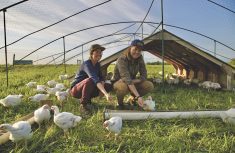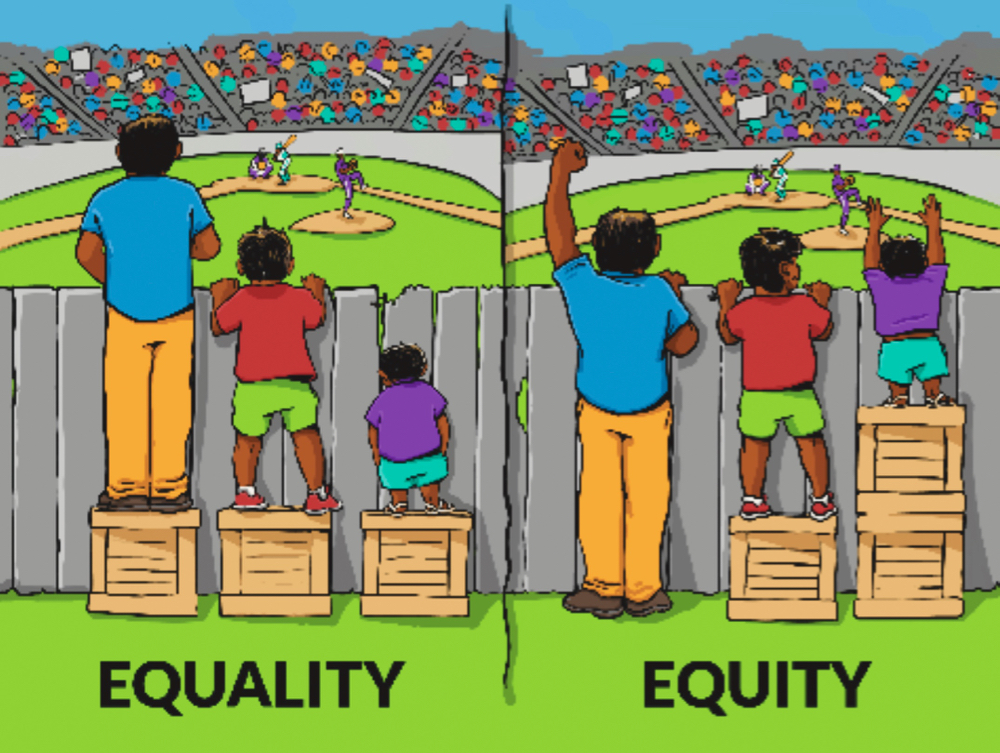Generations of farmers prioritized reinvesting back into the farm instead of creating personal savings.
But today’s generation is creating separation between farm and non-farm assets to minimize personal risk, position families for succession planning and increase family harmony.
Family harmony and work-life balance
Read Also

How scientists are using DNA and climate data to breed crops of the future
A method for forecasting how crops will perform in different environments so that plant breeders can quickly select the best parents for new, climate-resilient varieties.
Creating personal wealth outside of the farm plays a major role in promoting family harmony and achieving work-life balance. The constant pressure of farming can strain family relationships, especially when financial stress is a concern. Off-farm wealth provides a safety net to stop family conflicts from turning into disputes that could jeopardize the integrity of the farm.
A key difference today is the increasing threat of family breakdown. Historically, divorce was less prevalent throughout society, and even less so in farm families. Today, farm families are more susceptible to the pressures associated with running the business, and divorce and separation are commonplace.
Allocating some income to a “family pot,” or a personal account outside the farm, can ease family concerns. This helps ensure that even when the farm is struggling, the family is still protected. Knowing that money is available for family needs (i.e., groceries, school, vacations) can promote a healthier family environment and lead to better relationships between spouses, parents and children.
Off-farm wealth and farm succession planning
Off-farm wealth can also ease the transition of the farm to the next generation by protecting financial security and preserving family harmony. The most challenging aspects of farm succession include the exiting generation extracting enough value to support their lifestyle while simultaneously trying to distribute assets fairly among heirs, especially when some children want to continue farming while others do not.
Off-farm wealth can offer potential financial support to non-farming heirs, reducing the need to divide or sell farm assets which could compromise the operation’s viability. It allows parents to retire with financial independence, alleviating the pressure on the next generation to support them through farm income. Savings can reduce the cash-flow burden of succession. And setting policies around compensation and profit allocation years before succession occurs means that retirement funding and estate equalization can be tackled in smaller pieces over a longer timeline as opposed to burdening the farm business with future larger, lump sum-style commitments.
Separation between farm and non-farm income
A key challenge on a farm is that personal and business are intertwined. This can lead to financial tension and stress within the family. To reduce this, families can set up separate financial plans for farm versus off-farm income streams. This allows each income stream to be managed separately, making it easier to track farm-related expenses and income without mixing them with personal or external earnings. This can reduce family stress and provide a better indication of the health of the business. If the farm is relying on off-farm incomes to support it, perhaps it is time to reconsider some aspects of the business such as debt levels, equipment purchases and return on investment for capital purchases. For instance, income generated from off-farm employment or business ventures could be used to support personal goals, such as family vacations, retirement savings or educational expenses, rather than being reinvested into the operation.
Open communication is key to creating separation between farm and off-farm incomes and maintaining positive relationships. Regular family discussions about financial matters, business aspirations and personal goals can help ensure that expectations are aligned.
Creating off-farm wealth doesn’t have to be complicated
Personal wealth doesn’t have to mean a significant amount of money. Simply having enough personally held savings to cover a few months of family expenses can create a feeling of security for family members who may not be as actively involved in the farm.
Personal wealth creation doesn’t have to be complicated. Farmers can compensate themselves in various ways while ensuring the sustainability of the farm. One method is through structured salaries or wages — which surprisingly few farmers pursue. Farmers who pay themselves a regular salary from farm profits can establish personal financial stability separate from the farm. This ensures that personal expenses, retirement savings and other wealth-building strategies are funded consistently, reducing the risk of relying solely on farm earnings for future personal financial security.
The structure of the business can also provide different compensation options. For example, an incorporated farm gives owners the option to create income through tax-efficient dividends as opposed to salary or payroll — an important consideration when looking at the future as we want to maximize the efficiency of farm operations when possible.
Adopting these financial strategies allows farmers to preserve both their livelihoods and their family’s well-being, ensuring a more sustainable and prosperous future for generations to come.
Andrew Leach is a farm business advisor at FarmLife Financial. He specializes in transition coaching, succession planning, estate planning and next generation leader development. You can learn more about him at farmlifefinancial.ca.















